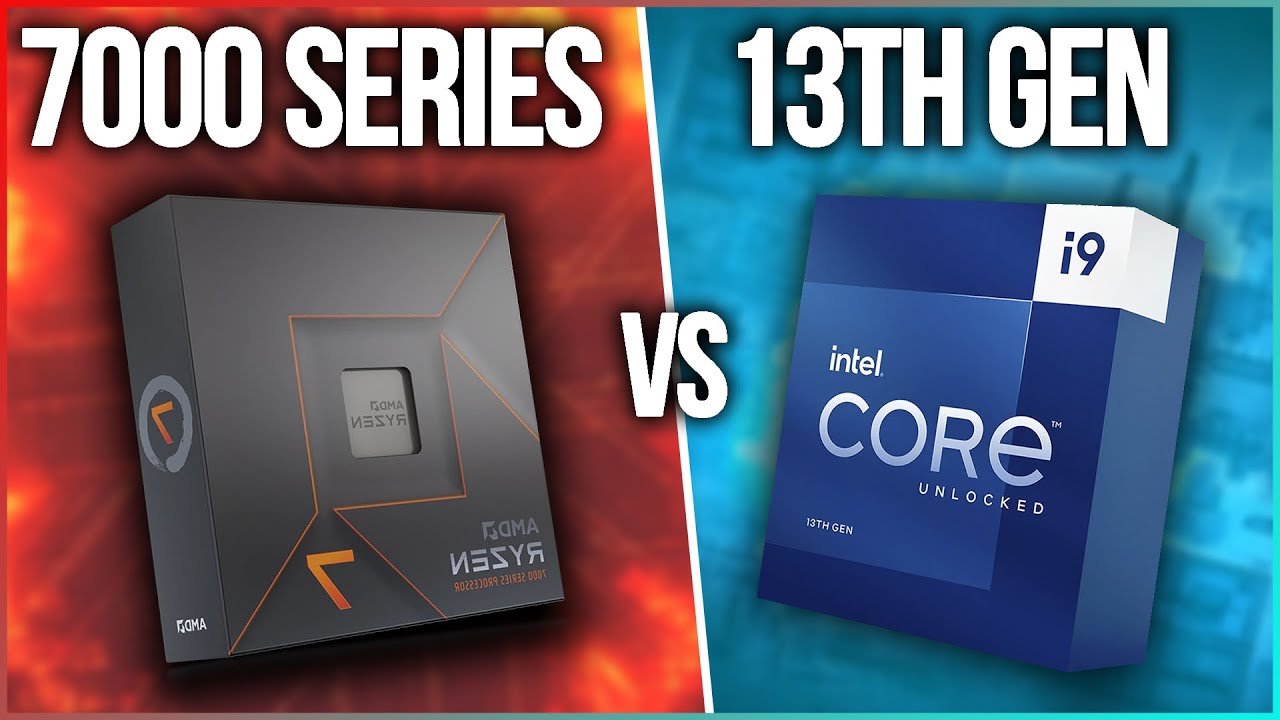In the ever-competitive world of desktop CPUs, Intel and AMD continue to push the boundaries of performance and innovation. The launch of Intel's 13th Gen CPUs and AMD's Ryzen 7000 series has ignited a fierce battle for supremacy. In this article, we dive deep into these processors, comparing their features, performance, architecture, and more. Whether you're a gamer, content creator, or professional, we'll help you decide which CPU is the right choice for your needs.
Intel 13th Gen: The Contender
Intel's 13th Gen CPUs have arrived with a splash, bringing several noteworthy features to the table:

AMD Ryzen 7000: The Challenger
AMD's Ryzen 7000 series has its own set of compelling features:

Head-to-Head Comparison
When it comes to comparing these giants, there are several key areas to consider:
-
Gaming Performance: Intel typically takes the lead in gaming, offering higher frame rates and lower latency. If gaming is your primary focus, Intel might be the way to go.
-
Productivity Tasks: For tasks like video editing, rendering, and multitasking, AMD Ryzen 7000 CPUs shine due to their multi-core prowess.
-
Power Efficiency and Thermals: Intel's focus on efficiency in the 13th Gen CPUs results in lower power consumption, which can lead to cooler and quieter systems.
-
Integrated Graphics: If you require integrated graphics for light gaming or work, Intel's integrated GPU may be a better fit.
Architecture and Technology

The architectural differences between these processors are fascinating:
-
Alder Lake: Intel's Alder Lake introduces a hybrid architecture, combining high-performance cores (P-cores) with efficient cores (E-cores). This unique design offers excellent single-threaded and multi-threaded performance.
-
Zen 4: AMD's Zen 4 architecture optimizes the Ryzen 7000 CPUs for power efficiency while maintaining strong multi-core capabilities, thanks to its unified L3 cache and other advancements.
Pricing and Value

-
Price Points: Intel and AMD offer CPUs at various price points, catering to different budgets.
-
Value: The value proposition depends on your specific needs. Gamers might find Intel's offerings appealing, while content creators could lean toward AMD for the additional cores.
-
Future-Proofing: Consider your long-term needs and future upgrades when evaluating the value of these CPUs.
Compatibility and Ecosystem
-
Motherboard Compatibility: Check motherboard compatibility and available chipsets for both Intel and AMD platforms.
-
Software and Driver Support: Ensure that the software and drivers you need are readily available for your chosen CPU.
Overclocking Potential
-
Intel 13th Gen: Intel CPUs traditionally offer good overclocking potential, providing enthusiasts with the ability to squeeze out additional performance.
-
Ryzen 7000: AMD Ryzen processors also support overclocking, although the extent may vary among models.
Future Developments and Upgrades


- Roadmaps: Intel and AMD have roadmaps outlining their future releases and improvements, which can influence your decision if you plan to upgrade down the line.
Conclusion
In the battle between Intel's 13th Gen CPUs and AMD's Ryzen 7000 series, there's no one-size-fits-all answer. It ultimately depends on your specific needs, whether you prioritize gaming, content creation, power efficiency, or future-proofing. Both Intel and AMD offer compelling options, so take your time to evaluate which CPU aligns best with your requirements. Whichever you choose, rest assured that you'll be equipped with a high-performance processor capable of handling today's demanding tasks.












